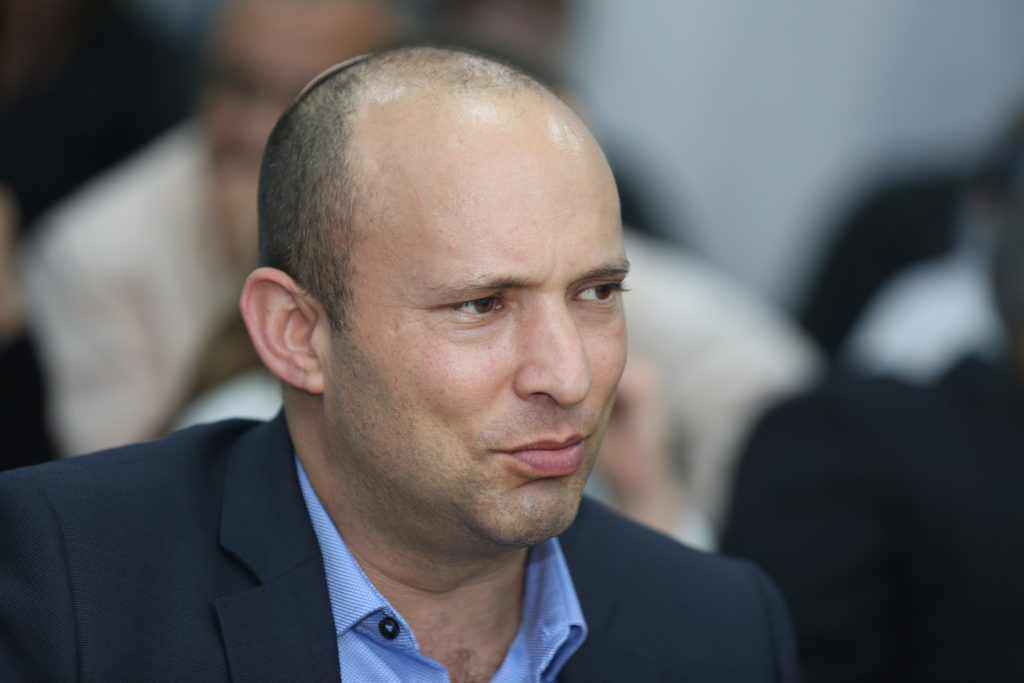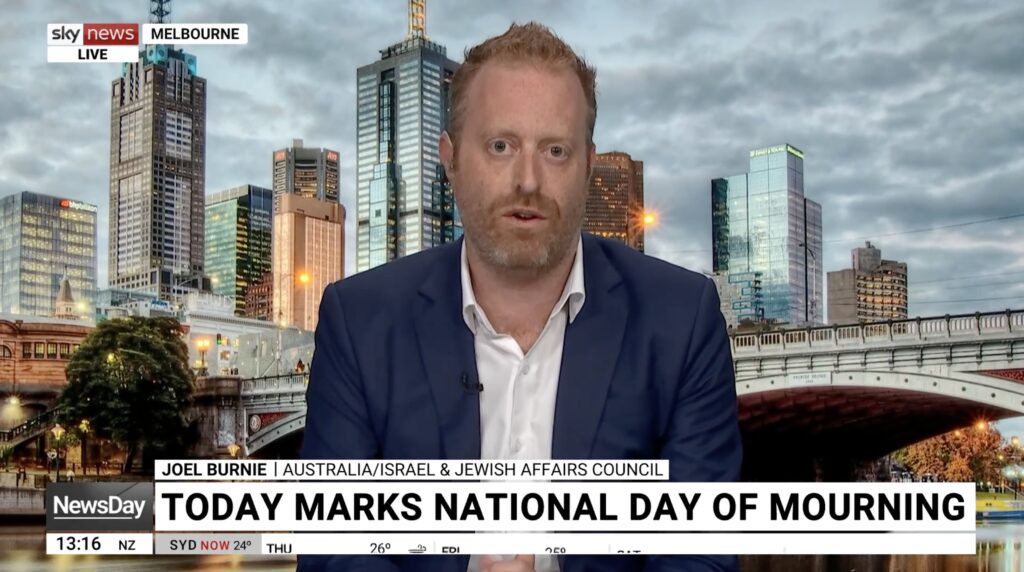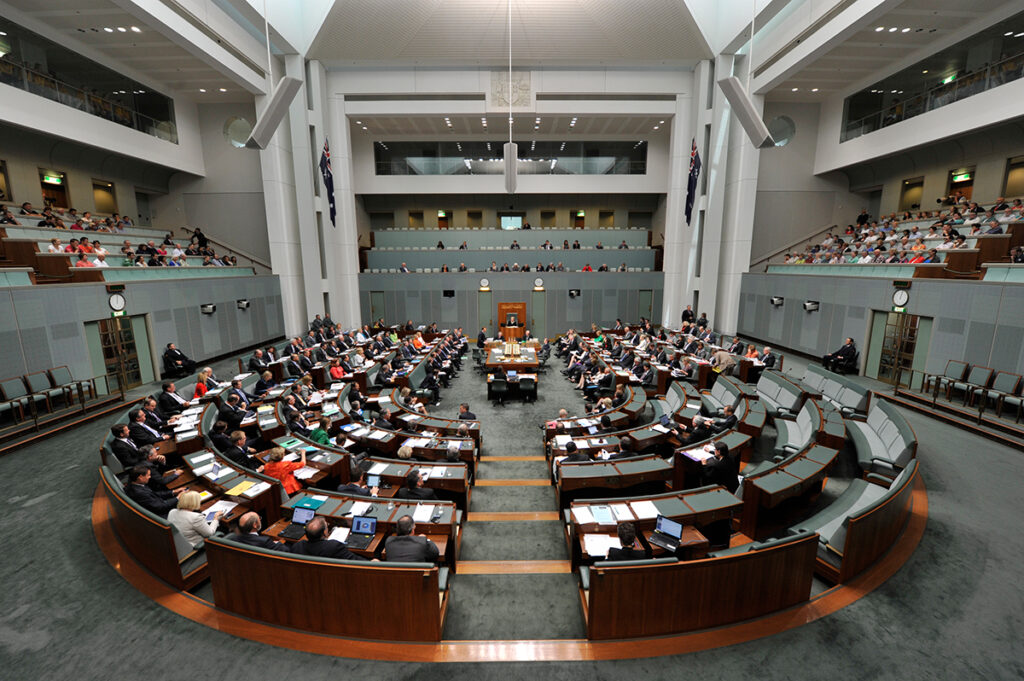IN THE MEDIA
What’s in store for Israel’s new coalition? – Ran Porat on ABC Radio
June 15, 2021

AIJAC Research Associate Dr. Ran Porat discussed the new Israeli governing coalition on ABC Radio with Ali Crew, 14 June 2021.
Ali Crew: For the first time in more than a decade, Israelis have a new prime minister, right-wing nationalist Naftali Bennett has been sworn in, replacing Benjamin Netanyahu. He’s been tasked with bringing some political stability in a divided country that’s seen for elections in the last two years. He’ll lead an unprecedented coalition which was approved with a razor-thin majority in parliament. But already, Mr. Netanyahu, now opposition leader, has vowed to return. So just what’s in store for this seemingly flimsy coalition? Doctor Ran Porat is a research associate at the Australia/Israel and Jewish Affairs Council, and he joins us now. Good morning, Ran. Now, just who is this new Israeli Prime Minister, Naftali Bennett? What can you tell us?
Ran Porat: Well, first of all, we have to emphasize that he’s not the prime minister by himself. It’s a unity government, so he will be prime minister with centrist Yair Lapid. As for Bennett, he grew up as a secular in San Francisco, turned into what we call national religious in his beliefs. And he’s a former high-tech sort of mogul. He’s made lots of money by selling a couple of high-tech companies. He’s been in politics for more than a decade, very right-wing, known to be flexible in his maneuvers, political maneuvers. But at the same time, sort of redhead, hot-headed, very emotional. And he pulled up quite an amazing stunt here because a leader of [a party] of 7 seats, and practically only six seats because one has left, out of 120, six seats out of 120 to become the prime minister for at least two years. That’s a major achievement. He always had his mind set up, set on becoming a prime minister, but now he’s achieved it.
Ali Crew: So what can you tell us about the other major players in this coalition?
Ran Porat: So it’s, you know what it is? It’s a very diverse and quite conflicting parties with conflicting ideologies setting in the same government from the left, Meretz and labor, Avodah, to the right-wing, Bennett’s party and others left-to-right parties in the government and they will be struggling or working at least in the first weeks to find the sort out what the common denominator to work on, on what would be mostly internal issues, and the need to sort of patch the tensions or address the tensions inside Israel following 12 years of Netanyahu’s rule and 12 years of external issues that also divided Israel quite dramatically.
Ali Crew: Dr. Porat, there has been a lot of talk about just how fragile this new governing coalition is. And, of course, Benjamin Netanyahu has vowed to take back control. Do you think this new government has any chance of seeing out a full term?
Ran Porat: Israel is saying… first of all, I would not say four years. The average Israeli government, if you look at 36 governments over 72 years or so, 73 years, that’s about 2.something years he has to govern. But the even more stable governments with less division did not survive the full four years, or at least not very recently. So it’s going to be hard. The Israeli saying [describing such a situation] is ‘laying on chicken drumsticks’, so very fragile, not very stable. But there is a major difference from previous governments, and that is that every aspect, every party that is in this government knows that they can either, on the one hand, make it go away just in 24 hours if they decide to object to it. But at the same time that if they do that, they will be punished heavily or they might be punished heavily by their constituents. So they need to garner enough support by being in the government and doing enough before they can actually consider leaving it. So there is some chance, there is some hope that it will survive more than other governments, but only time will tell
Ali Crew: What will be the priorities of this new coalition?
Ran Porat: As I said, it’s mostly internally, specifically dealing with the many tensions inside Israeli society that were unveiled or uncovered in recent years between the religious and secular, but also which were really [became obvious] during the Corona time, and [tensions] between the Arab Israelis and Jewish Israelis that was unveiled. It was again uncovered during the last conflict in Gaza and between the left and right, which is something that Netanyahu used to ride on that sort of divide and paint the other side, the left side as almost demonically, very, very negatively. So there’s a lot to address in that situation there. A lot of funds will go into the Arab sector, lots of funds will go or possibly some sort of interaction with the ultrareligious. It’s a very, very sensitive topic. What will not be dealt with is the… or less attention will be given to the Palestinian issue, which will be sidelined because it’s so divisive inside the government. There was no I think no agreement on what the policy should be followed. So the policy will probably be something like a middle-of-the-road to the minimum.
Ali Crew: What’s next for Benjamin Netanyahu? Do you think we’ve seen the end of him as yet?
Ran Porat: Netanyahu is going nowhere and he’s quite sure, he’s quite confident that he can actually divide the government again and find the defector he’s looking for and make a comeback. He still believes he’s one of the greatest prime ministers in Israel’s history. And all things considered, he can point to several major achievements that he has completed during his time, mostly the agreements with Arab and Muslim countries, the Abraham Accords and the fighting against the coronavirus, which was very successful with the Pfizer vaccine rollout. But he is going nowhere and he is working even now, even when the government was sworn in, he was working to try and find those who can join him and maybe topple this government altogether.
Ali Crew: As you say, we haven’t seen the end of him yet. Certainly interesting times. Dr. Ran Porat, thanks for joining us today. It’s great to get your insights.
Ran Porat: Thank you very much. Good morning.
Ali Crew: Dr. Ran Porat, research associate at the Australia, Israel and Jewish Affairs Council, speaking to us there.
Tags: Benjamin Netanyahu, Israel, Naftali Bennett





